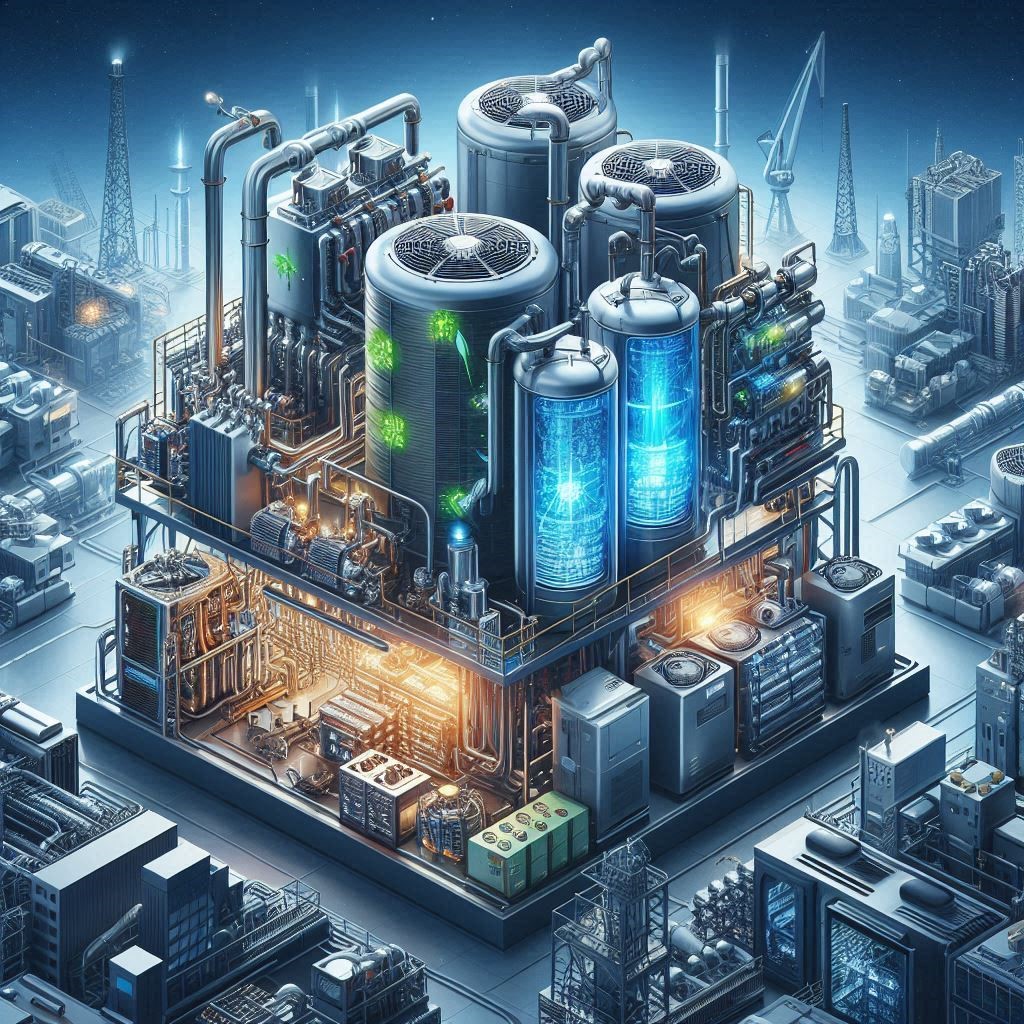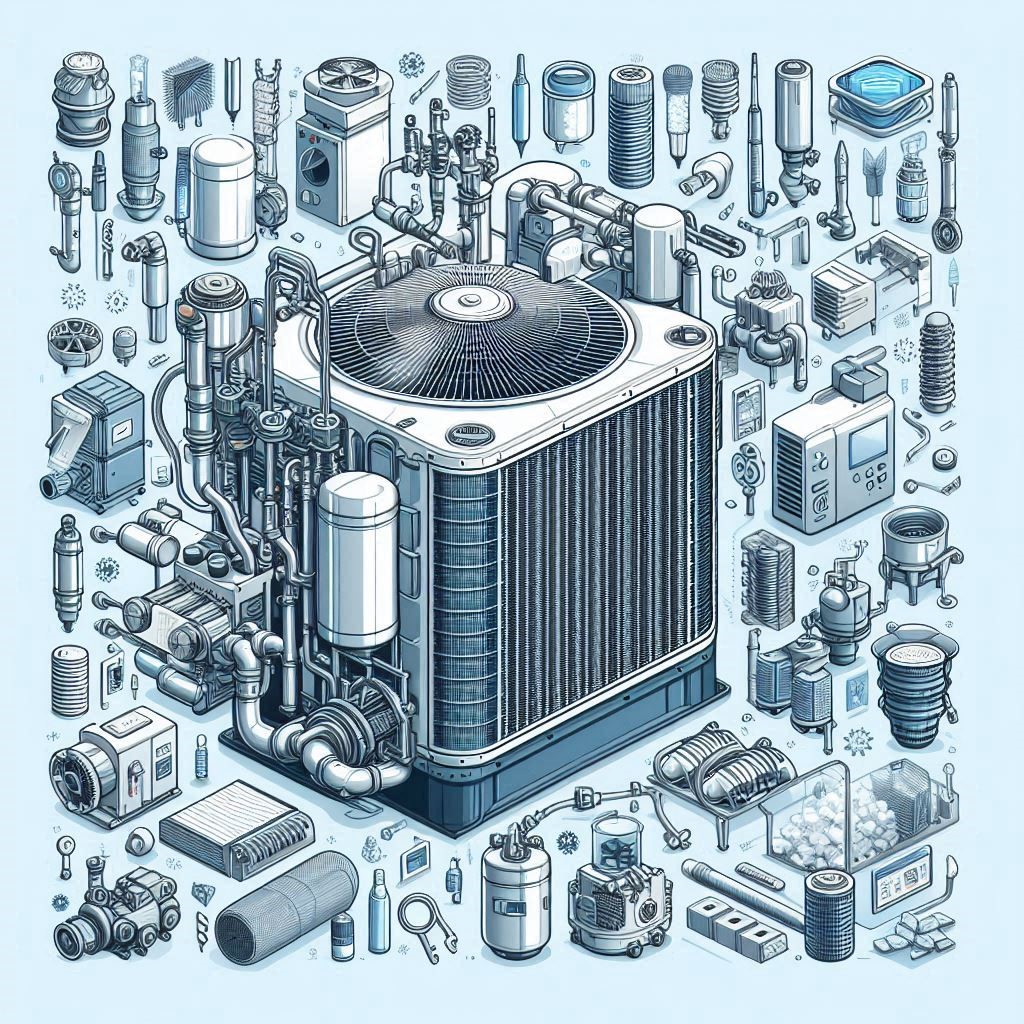The global refrigeration coolers market has seen remarkable transformations in recent years, driven by the growing need for energy efficiency, sustainability, and the advent of smart technologies. From the rise of internet-of-things (IoT) devices to the integration of AI and data analytics, these innovations are significantly reshaping the way refrigeration systems operate and how they serve industries across the globe.
In this article, we will explore the key trends driving the refrigeration coolers market and how smart technologies are transforming the industry for the better.
1. Smart Cooling Systems: The Future of Energy Efficiency
One of the most prominent trends in the refrigeration coolers market is the growing adoption of smart cooling systems. These systems use IoT-enabled devices to monitor and control the cooling process remotely, providing real-time data on temperature, humidity, and performance.
Smart cooling technologies not only optimize energy consumption but also reduce operating costs and minimize environmental impact. These systems can learn user preferences and adjust settings accordingly, allowing for more efficient and tailored refrigeration solutions. For example, retailers can remotely monitor refrigerated display cases in stores, ensuring that the temperature is constantly regulated to preserve perishable goods while reducing energy waste.
2. IoT-Enabled Refrigeration for Predictive Maintenance
IoT has significantly transformed the way businesses maintain refrigeration coolers. Traditional systems relied on manual checks and troubleshooting, which often led to expensive repairs and unplanned downtime. However, with IoT-enabled refrigeration coolers, sensors continuously monitor key components and performance metrics in real time. These systems can alert managers to any potential issues before they result in equipment failure, enabling predictive maintenance.
By identifying problems early, businesses can schedule maintenance during non-peak hours, avoid emergency repairs, and reduce the overall lifecycle costs of their refrigeration systems. Predictive maintenance, backed by IoT, is particularly beneficial in industries like food storage, pharmaceuticals, and logistics, where refrigeration is critical to product quality and safety.
Download PDF Brochure @
https://www.marketsandmarkets.com/pdfdownloadNew.asp?id=250448757

3. AI and Machine Learning in Refrigeration Optimization
Another technological advancement driving the global refrigeration coolers market is the integration of artificial intelligence (AI) and machine learning algorithms. These technologies are being used to analyze large sets of data collected from refrigeration systems and identify patterns that can optimize performance.
For example, AI-powered systems can automatically adjust cooling temperatures based on factors like external weather conditions, internal heat load, and product type. In a supermarket, an AI-powered refrigeration system could adjust its settings based on the number of people in the store or the time of day, ensuring that energy consumption is always at an optimal level.
AI also allows for the automation of decision-making, ensuring that refrigeration units are always operating in the most efficient manner possible without requiring human intervention. Over time, machine learning algorithms improve system performance by learning from past actions and optimizing energy consumption patterns.
4. Eco-Friendly Refrigeration Solutions: Sustainability at the Core
Sustainability continues to be a key driver in the refrigeration coolers market. As industries look for ways to minimize their carbon footprint, companies are increasingly investing in eco-friendly refrigeration solutions. In particular, the use of natural refrigerants, such as carbon dioxide (CO2), ammonia (NH3), and hydrocarbons, is gaining popularity as an alternative to conventional synthetic refrigerants that are harmful to the environment.
The adoption of eco-friendly cooling technologies is not limited to refrigeration coolers alone. Entire systems, including refrigerated trucks, cold storage warehouses, and retail display units, are being designed to meet energy efficiency and environmental sustainability goals. These efforts not only reduce greenhouse gas emissions but also align with government regulations and sustainability goals set by various international organizations.
Moreover, advancements in energy recovery systems are helping businesses capture waste heat generated by refrigeration coolers and use it for other applications, such as heating water or space. This further enhances the overall energy efficiency of refrigeration systems.
5. Blockchain Technology for Enhanced Traceability and Transparency
In an increasingly connected world, traceability and transparency are essential, particularly in industries like food and pharmaceuticals where the integrity of products is of utmost importance. Blockchain technology is emerging as a solution that can ensure the traceability of products across the entire cold chain process.
With blockchain, businesses can create secure, immutable records of temperature, handling, and transportation data. This ensures that products like perishable foods or sensitive medications have been stored and transported under the right conditions throughout their journey, from production to consumer. Blockchain also enables real-time monitoring and visibility of refrigerated products, reducing the risk of spoilage and waste, and improving consumer confidence in product safety and quality.
6. Increased Demand for Modular and Flexible Refrigeration Solutions
The demand for modular and flexible refrigeration solutions is also on the rise, especially in commercial and industrial applications. Businesses are looking for refrigeration systems that can be easily adapted to changing needs, such as seasonal fluctuations or shifts in product types.
Modular systems allow businesses to scale their refrigeration units based on demand, providing greater flexibility in storage and cooling capacity. These systems are also easier to maintain, as individual components can be replaced or upgraded without having to overhaul the entire system. This trend is particularly popular in sectors like retail, where space and energy efficiency are essential for optimizing operations.

Conclusion: The Future of Refrigeration Coolers is Smart, Efficient, and Sustainable
The global refrigeration coolers industry is rapidly evolving, driven by technological advancements that are changing the way businesses operate. From IoT-enabled predictive maintenance and AI-powered optimization to eco-friendly refrigerants and blockchain traceability, the future of refrigeration is focused on smart, efficient, and sustainable solutions.
As industries continue to prioritize energy efficiency, sustainability, and automation, the demand for innovative refrigeration coolers will only continue to rise. Businesses that embrace these technologies will not only gain a competitive edge but also contribute to a more sustainable and energy-efficient future.
The future of refrigeration is bright, and it’s smart—embracing innovation is key to staying ahead in this rapidly evolving market.
Frequently Asked Questions (FAQ) – Global Refrigeration Coolers Market
1. What are refrigeration coolers, and how do they work?
Refrigeration coolers are systems used to store and preserve perishable goods by maintaining a controlled low-temperature environment. They work by circulating coolants through a compressor and evaporator system to remove heat, ensuring the temperature inside remains stable.
2. How is smart technology transforming the refrigeration coolers market?
Smart technology is revolutionizing refrigeration coolers by enabling IoT-enabled devices for remote monitoring and control, AI-powered optimization for energy efficiency, and predictive maintenance to reduce downtime. These technologies help businesses save energy, improve performance, and enhance operational efficiency.
3. What are the benefits of using IoT-enabled refrigeration coolers?
IoT-enabled refrigeration coolers provide real-time data on temperature, humidity, and performance, allowing businesses to monitor systems remotely, detect potential issues early, and ensure optimal operation. This helps in reducing energy consumption and operational costs while increasing product safety and reliability.
4. What role does AI play in refrigeration coolers?
AI plays a critical role in refrigeration coolers by automating processes like temperature adjustments based on real-time data, optimizing energy usage, and improving decision-making through machine learning. AI also helps in enhancing the overall efficiency of the system, leading to reduced waste and increased productivity.
5. How does blockchain technology enhance refrigeration coolers?
Blockchain technology enhances refrigeration coolers by providing traceability and transparency throughout the cold chain process. It ensures that temperature-sensitive products, like food and pharmaceuticals, are stored and transported under the correct conditions. Blockchain also helps in maintaining immutable records of product handling, increasing trust and product quality.
6. What are eco-friendly refrigeration solutions, and why are they important?
Eco-friendly refrigeration solutions use natural refrigerants such as carbon dioxide, ammonia, or hydrocarbons instead of synthetic refrigerants that are harmful to the environment. These solutions help reduce greenhouse gas emissions, align with sustainability goals, and comply with global environmental regulations.
7. What is the demand for modular refrigeration solutions?
Modular refrigeration solutions are becoming increasingly popular due to their flexibility, scalability, and ease of maintenance. Businesses can easily adjust the cooling capacity based on demand, whether it’s for seasonal changes or different product types, making them ideal for industries like retail, logistics, and food storage.
8. How does AI-powered predictive maintenance work in refrigeration coolers?
AI-powered predictive maintenance uses data from sensors and IoT devices to monitor refrigeration cooler performance in real time. The system analyzes this data to predict potential failures or issues before they occur, allowing for proactive maintenance, minimizing downtime, and reducing unexpected repair costs.
9. How does the growing demand for energy-efficient refrigeration systems impact the market?
The growing demand for energy-efficient refrigeration systems is driving innovation in the market. Businesses are increasingly adopting advanced technologies like AI, IoT, and natural refrigerants to reduce energy consumption and operational costs. As companies focus on sustainability and cost-saving initiatives, the demand for energy-efficient refrigeration systems continues to rise.
10. What are the key trends shaping the global refrigeration coolers market?
Key trends shaping the global refrigeration coolers market include the adoption of smart technology for real-time monitoring and control, the rise of eco-friendly refrigerants, AI-driven optimization for energy savings, IoT-enabled predictive maintenance, and increasing demand for modular and flexible refrigeration solutions.
